
Bottlebrush Pruning Info Learn How And When To Prune Bottlebrush Bottlebrush Plant, Prune
Lightly prune just after the bush has finished flowering to keep them under control, cutting just behind the spent flowerhead. Most bottlebrush do not take kindly to being hard-pruned, although C citrinus 'Splendens' can be cut more severely if needed, and this is also best attempted immediately after flowering.. 5 VARIETIES OF BOTTLEBRUSH TO LOOK OUT FOR
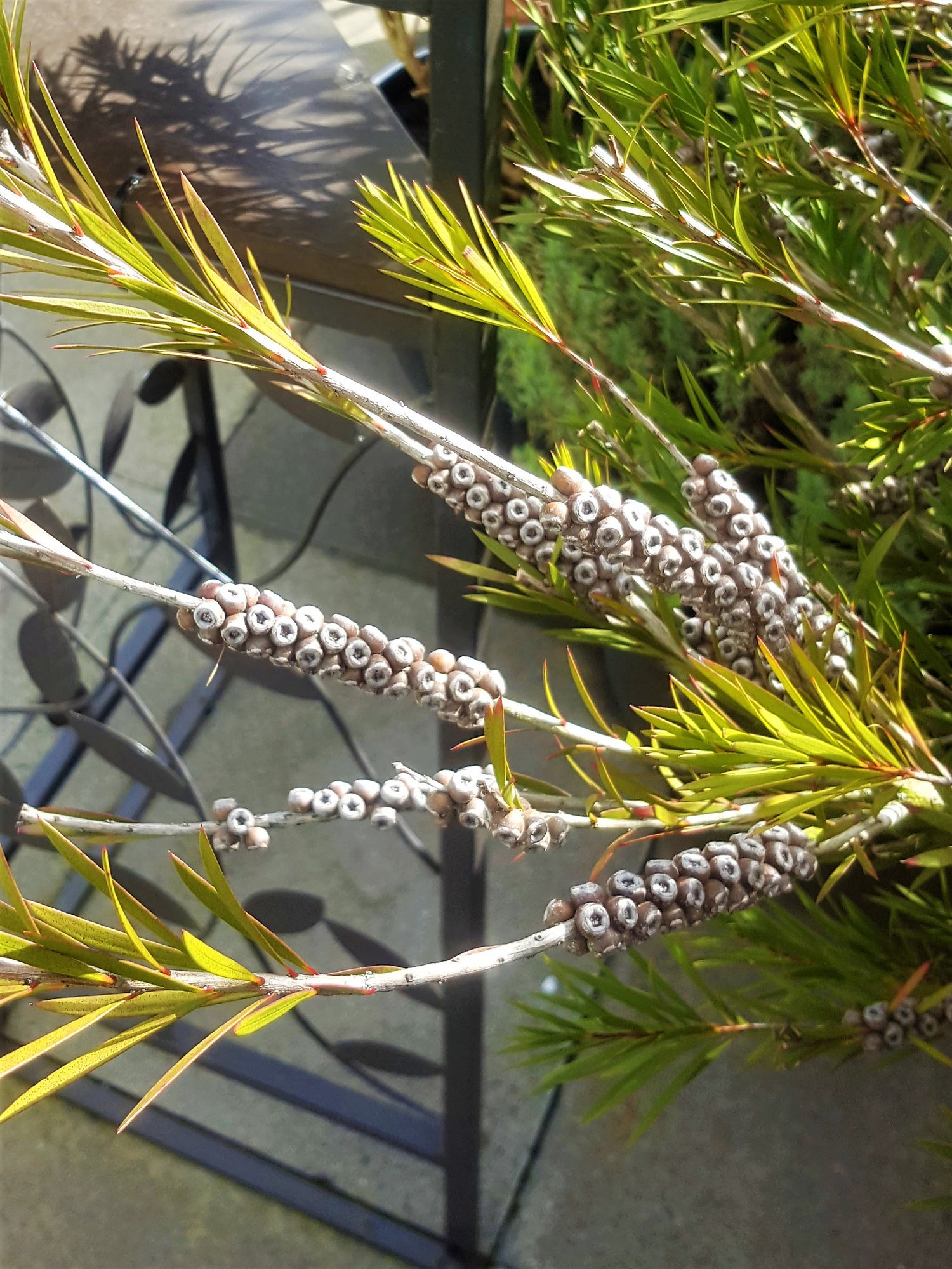
Bottlebrush pruning? — BBC Gardeners' World Magazine
Once established, water Bottlebrush occasionally. To establish an extensive root system, water deeply and regularly during its first growing season. Once established, reduce the amount of watering. To water, deep soak around the root ball. Install emitters about one and a half feet from the trunk. If using a water hose, set the hose on a slow.

How to Prune Bottlebrush Trees Garden Guides
¡Precios increíbles y alta calidad aquí en Temu. Envío gratuito en todos los pedidos. No deslizar. Enormes descuentos en nuestros productos aquí - ¡hasta un 90% de descuento!
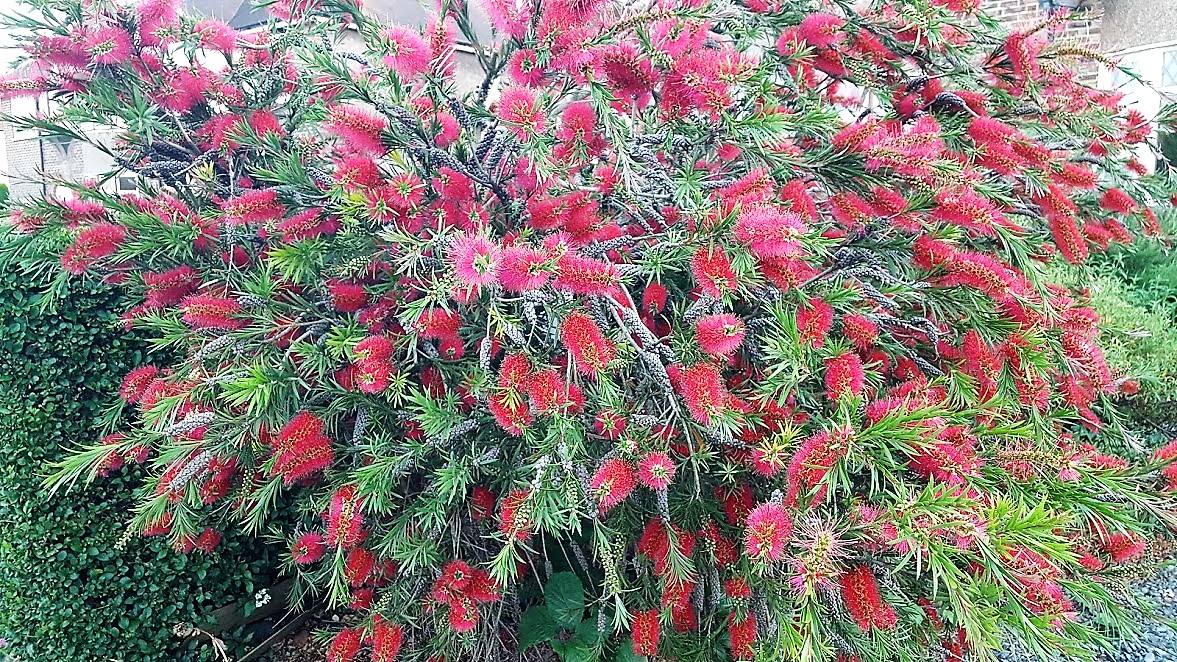
WHEN AND HOW TO PRUNE BACK BOTTLEBRUSH PLANTS The Garden of Eaden
When To Prune A Bottle Brush Plant. Bottlebrush plants flower on the current years grows so lightly prune just after the bush has finished flowering to keep them under control, cutting just behind the spent flowerhead. Most bottlebrush do not take kindly to being hard-pruned, although C citrinus 'Splendens' can be cut more severely if.

Bottlebrush Plant Pruning And Care How To Grow A Bottlebrush
Bottlebrush Pruning for Health. Bottlebrush pruning that helps plants to maintain good health should be looked at in spring and late summer. Pruning bottlebrush should be lighter than the average gardener may be accustomed to. Interior branches should be removed if damaged or diseased, and thinned only lightly if inner growth is turning brown from lack of sun.

A Guide to Pruning And Taking Care of Bottlebrush Bushes Gardenerdy Bush plant, Bottle brush
Pruning and Maintenance. Bottlebrush can be grown as a shrub or pruned to have a single trunk and resemble a tree. In late winter, you can cut the lower branches that are hanging down until you achieve the shape you desire. Trim stems individually, cutting just above a node on each branch.
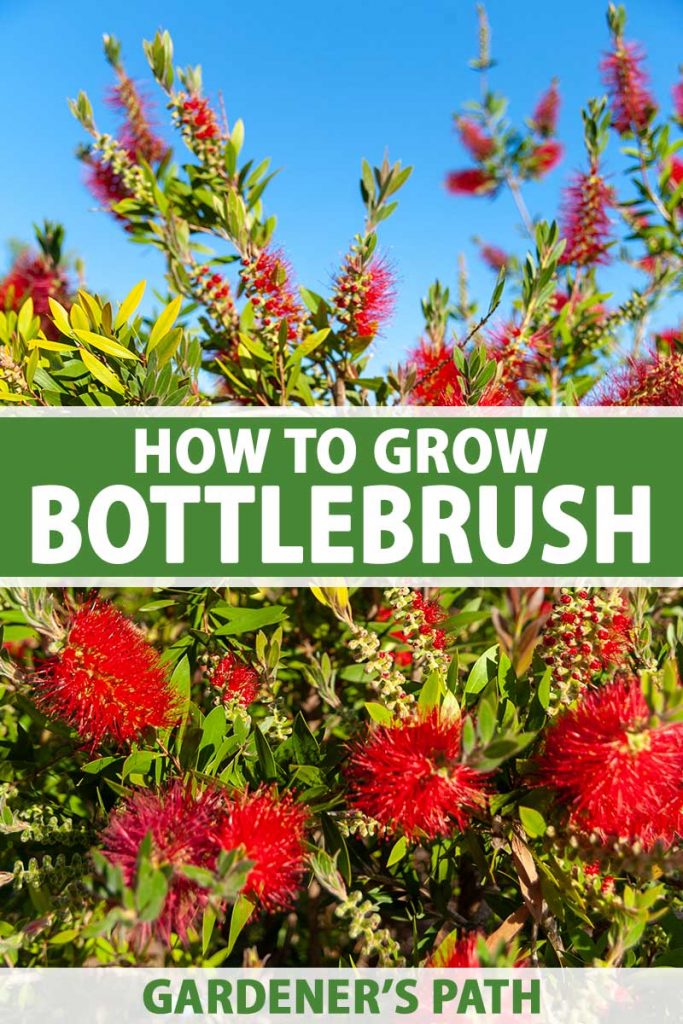
How to Grow and Care for Bottlebrush Bushes Gardener’s Path
Tip prune in late winter, before the buds begin to swell, Cut off the tips of the branches back to within 1/4 inch of a bud, but avoid cutting into the old wood that no longer produces new buds. You may be pruning off some flowers, because bottlebrush flowers only on new wood, but the resulting shrub develops a fuller shape and more flowering.
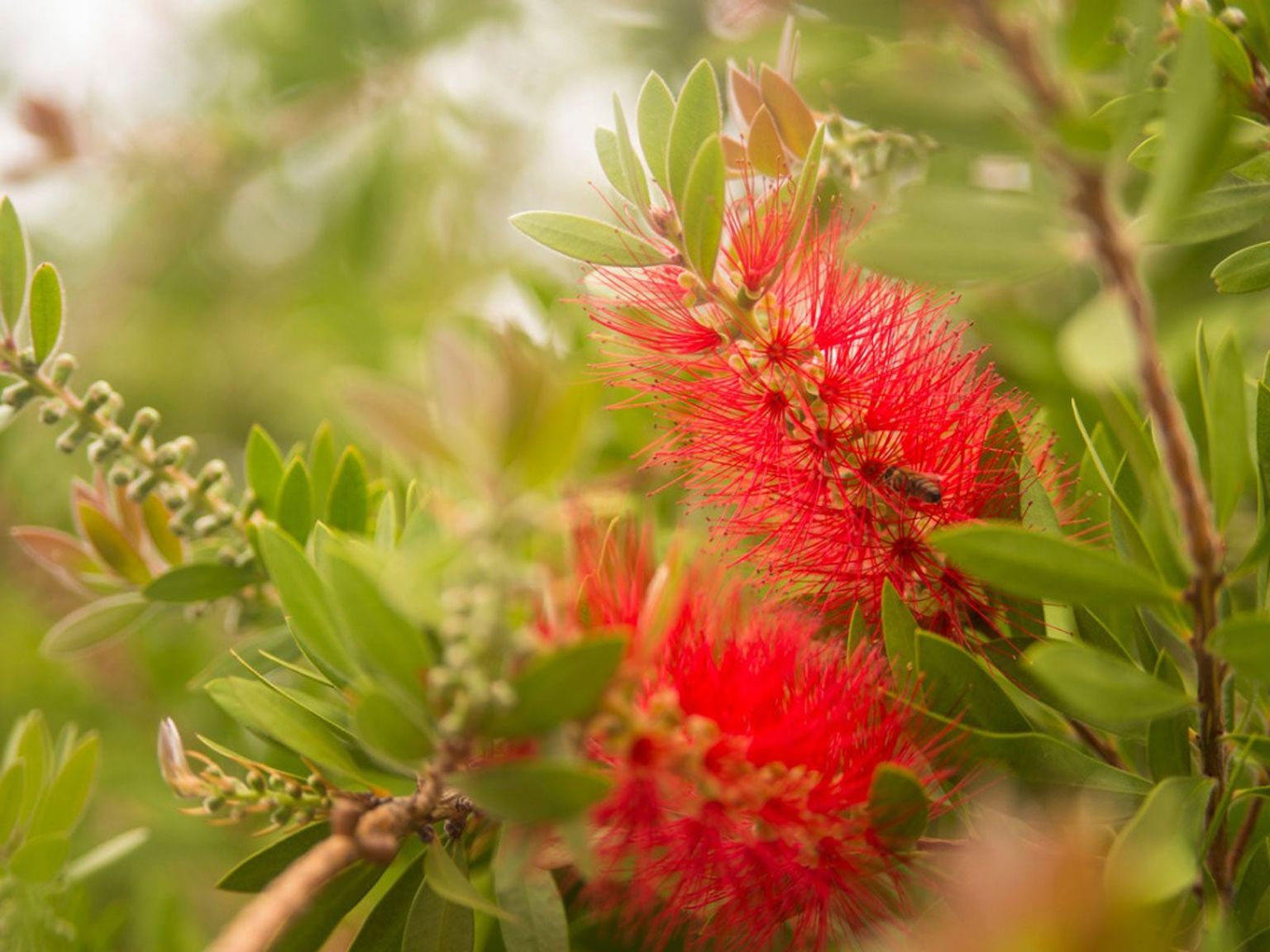
Bottlebrush Plant Pruning And Care How To Grow A Bottlebrush
The bottlebrush is often sold as a shrub, but can grow as a tree up to 25 feet in height. With patience, it can even be trained as an espalier. There is an upright species and one that has a weeping form. The upright type can also make a nice screen or unclipped hedge. Bottlebrush will thrive in full sun and can adapt to a variety of soils.
/weeping-bottlebrush-growing-profile-3269327-hero-8ba81c6f49a246e995a55dbf177e646d.jpg)
Weeping Bottlebrush Plant (Callistemon viminalis) Care and Growing Guide
P Pruning. When Should You Prune A Bottle Brush Plant? (Check This First) Lightly prune just after the bush has finished flowering to keep them under control, cutting just behind the spent flowerhead. 'Splendens' can be cut more severely if needed, but most bottlebrush do not like being hard-pruned, and this is especially true if the plant.

Bottlebrush Pruning Info Learn How And When To Prune Bottlebrush
C. citrinus: Lemon Bottlebrush. Shrub or tree. Zones LS, CS, TS; USDA 8-11. Most commonly grown bottlebrush; most tolerant of heat, cold, and poor soils. Massive shrub to 10-15 ft. tall and wide, but with staking and pruning in youth easily trained into narrowish, round-headed, 20- to 25-ft. tree. Nurseries offer it as a shrub, espalier, or tree.

How To Grow And Prune A Bottlebrush Tree Bunnings Australia
Best offers for your Garden - https://amzn.to/2InnD0w-----How to Prune a Bottlebrush Shrub. Bottlebrush shrubs (Callistemon spp.) produce highly.

For the best appearance and the most abundant blooms, learning how to prune bottlebrush plants
Pruning a bottlebrush tree is an essential part of its upkeep. If left unpruned, the tree can become straggly, with long, gangly branches. Pruning also helps to promote new growth and keeps the tree looking its best. The best time to prune a bottlebrush tree is in late winter or early spring, before new growth begins. You will need a sharp pair.

How to Prune a Bottlebrush Tree
Deadhead bottle brush shrubs in late August after flowers have faded. Use a pruning saw to cut branches as close to the ground as you can. Apply 2 to 3 inches of compost or a low-phosphorus commercial fertilizer like 10-5-10 after a rejuvenation pruning. The compost or fertilizer will help kick-start new growth. References.

how to trim weeping bottlebrush Book Chronicle Ajax
When to Prune Bottlebrush . Callistemon bottlebrush varieties are evergreen and can tolerate pruning at just about any time of the year. Callistemon blooms on current year's growth and will have sporadic blooming throughout the year in its preferred growing zones of 9-11. Pruning dead, dying, or diseased growth in the late winter keeps this.
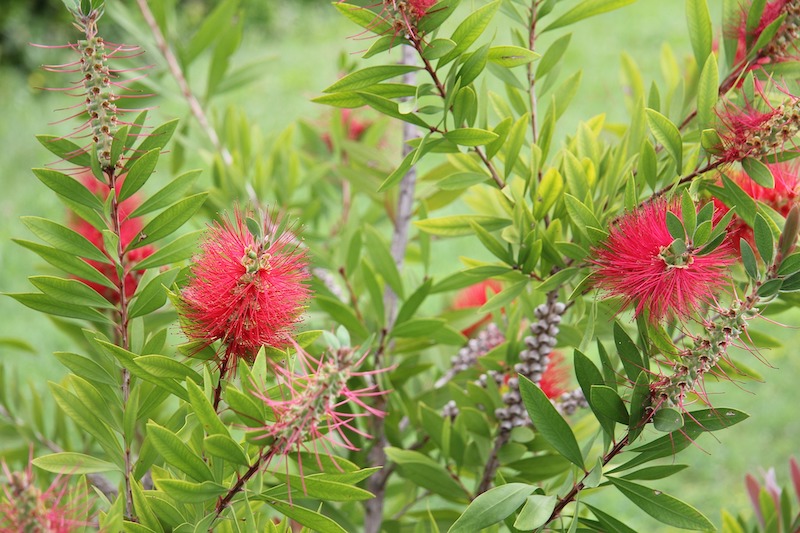
Pruning Bottlebrush Plant Addicts
Lesser bottle brush (Callistemon phoeniceus): 2-4m tall and 2-3m wide with scarlet brushes.. How and when to prune bottlebrush. Pruning stimulates branching, resulting in more flowers in subsequent years. Plants should be pruned after flowering, just behind the spent flowers. If this is not done the flowers produce small woody fruits.
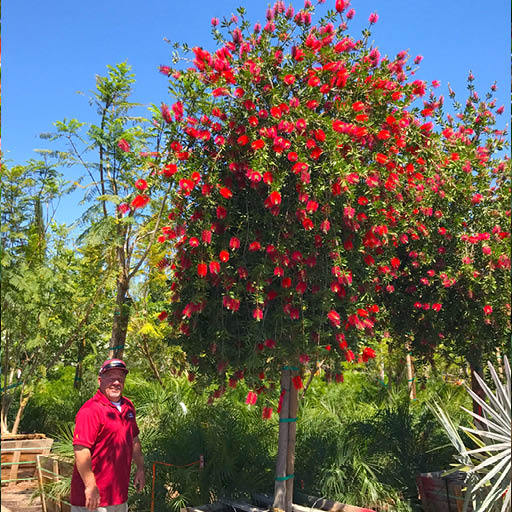
Bottlebrush Care Guide Tree Care Moon Valley Nurseries
Bottlebrush plants need a very mild climate. If you live in an area cooler than USDA plant hardiness zones 8b through 11, grow bottlebrush in pots that you can move to a protected area for winter. Use a rich, peaty potting soil with a few handfuls of sand added to improve the drainage. If pruned hard every year, the plants will grow in pots as small as 6 to 8 inches (15 to 20 cm.) in diameter.